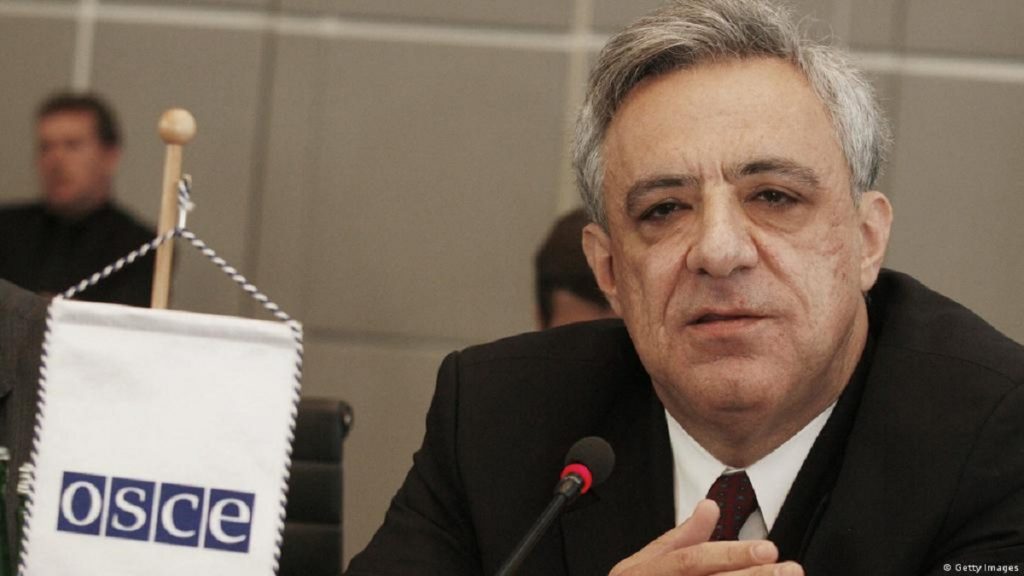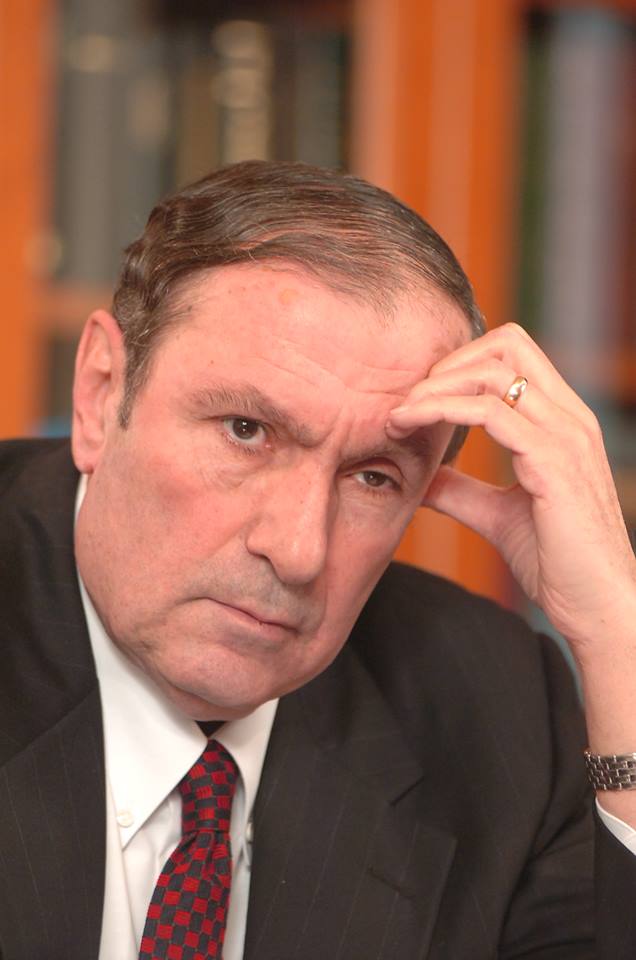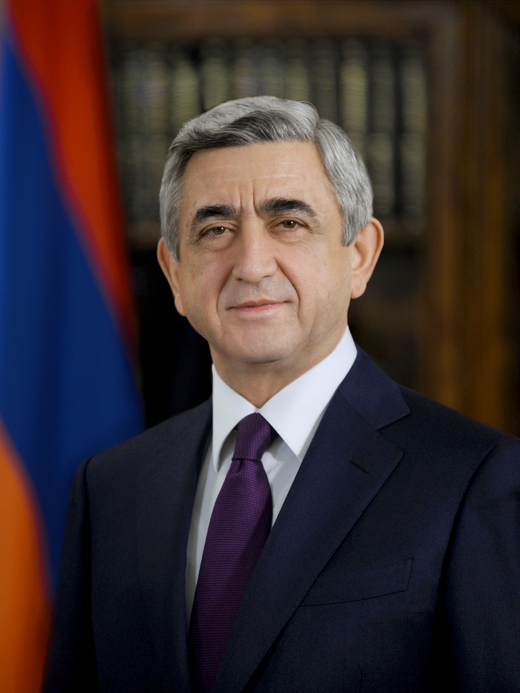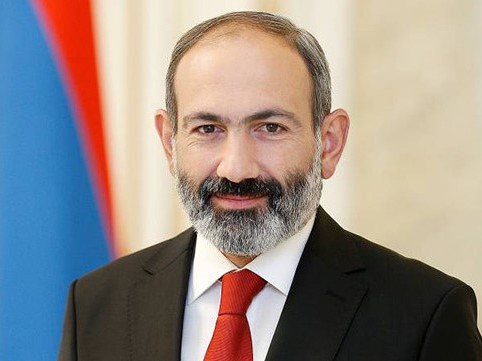Armenia-Azerbaijan talks: new details from Armenia's former Minister of Foreign Affairs
Former Armenian Foreign Minister Vartan Oskanian presented his article “Imperative of the Negotiation Agenda” to the Armenian media regarding the stages of the settlement of the Karabakh conflict. He served as Foreign Minister from 1998 to 2008 and is one of the few diplomats who knows in detail everything that happened at the negotiating table.
The ex-minister openly spoke about the exact position of the previous Armenian authorities in the negotiations with Azerbaijan, expressed his opinion on the position of the current government and even made recommendations.
Oskanian considered it his duty to speak out, as he assumes that negotiations within the framework of the OSCE Minsk Group, interrupted by the war of 2020, may resume in the very near future.
An article by a former minister with minor cuts.
- Deputy PMs of Armenia, Azerbaijan and Russia discuss unblocking of communication routes
- Armenia vs Azerbaijan: Hearings at the UN International Court of Justice
- Armenia’s Security Council Secretary: There will be no exchange of territories with Azerbaijan
- “The war was inevitable, but it is not the end yet”- experts analyze the second Karabakh
Assessment of the situation

“It is difficult to predict how the negotiation process will proceed, as the 44-day war has turned the status quo upside down. Even experienced diplomats of the co-chairing countries find it difficult today to decide what position to take and where to start a new process.
On the one hand, the positions of the three co-chairing countries will hardly coincide now, given the presence of Russian peacekeepers in Nagorno-Karabakh and, accordingly, the strengthening of Russia’s positions. On the other hand, the co-chairing countries do not know what positions the parties to the conflict will bring to negotiations.
The agenda, which the Armenian side will present at the very first meeting, will largely determine what content will be formed and consolidated during the entire further course of the negotiations.
Throughout 25 years, the Minsk Group has presented five proposals for the settlement of the Karabakh conflict. All of them, without exception, reflected the principles and policies of the Armenian authorities of that time”.
Position of the first president of Armenia

“The policy of Levon Ter-Petrosyan [elected in 1991, resigned in 1998 – JAMnews] towards Karabakh was based on a sober assessment of the existing and gross potential of Armenia in those days, combined with its unconditional realism in relation to international and geopolitical events. Ter-Petrosyan was convinced that the post-Cold War international sentiment was such that it was impossible to achieve full self-determination of Nagorno-Karabakh outside Azerbaijan.
Therefore, he believed in the following: “If we demand a complete settlement of the Karabakh conflict, then we must come to terms with the high autonomy of NK within Azerbaijan, and if not, we must go to a phased solution of the issue”.
It is noteworthy that in 1997 the Minsk Group proposed two documents that fully reflected the logic of Levon Ter-Petrosyan.
The first was a document on a “package” settlement, according to which Nagorno-Karabakh was granted high autonomy within Azerbaijan.
It was immediately rejected by Armenia and Nagorno-Karabakh. The next proposal – on the “phased” return of territories [areas around NK, which came under the control of the Armenian side following the results of the first Karabakh war in the early 90s and which were considered a security belt for NK] without specifying the status of Nagorno-Karabakh – Ter-Petrosyan considered the least evil , which later became one of the reasons for his resignation”.
Position of the second president of Armenia

“The approach of Robert Kocharian [two presidential terms from 1998 to 2008] to the solution of the Karabakh issue was based not on the existing possibilities of the Republic of Armenia, but on the possible future potential, and was combined with his strict pragmatism in international politics.
Kocharian was convinced that purposefulness and organization in management issues can ensure development and more advantageous positions in the negotiation process. Pragmatism was expressed in the fact that, while correctly assessing the geopolitical events and trends at the time, as well as the moods of the main players, he did not make strict demands on the Karabakh settlement, contrary to his personal convictions.
The demands of the Armenian side at that time included:
- horizontal connection between Nagorno-Karabakh and Azerbaijan,
- ensuring NDT security,
- guaranteed connection between NK and Armenia.
It is noteworthy that over the ten years of Kocharian’s work, the Minsk group has made three proposals:
- A “common state” that offered a horizontal link between Karabakh and Azerbaijan;
- Key west, through which Karabakh was transferred under the sovereignty of Armenia,
- “Madrid Document”, according to which Karabakh received an intermediate status outside Azerbaijan with the prospect of a future referendum”.
Position of the third president of Armenia

“The period of Serzh Sargsyan [two presidential terms from 2008 to 2018] was basically a continuation of Kocharian’s pragmatism – partly inertial, partly proactive.
At this stage, not a single new document appeared, only various changes were made to the Madrid document, including the so-called “Lavrov plan”, which, in fact, was a phased version of the Madrid one”.
Position of the incumbent prime minister before the war

“Nikol Pashinyan’s position on the Karabakh issue after his coming to power was vague and chaotic. Unfortunately, he did not want to consult with any of the former authorities. He found himself in a deceptive circle: “If you do not know where you are going, you will never get lost”, and, accordingly, he never felt the need to ask himself if he was on the wrong path.
Then Pashinyan had an idea that became the cornerstone of his policy towards Karabakh: a solution to the issue should be acceptable to the peoples of Armenia, NK and Azerbaijan.
Many argue that one of the reasons for the start of the war was Pashinyan’s phrase “Artsakh is Armenia, period”. I think it was this idea that gave Azerbaijan an excuse to substantiate the impossibility of resolving the issue through negotiations. For Azerbaijanis, it was a combination of cynicism and baseless idealism”.
What’s going on now
“After the war and amid the possible resumption of negotiations within the framework of the Minsk Group, the combination of Pashinyan’s cynicism and idealism received new manifestations. Cynicism is expressed in underestimating and neglecting our losses and, what is more sad and dangerous, in justifying them, while idealism is expressed in the proposal to start a new era of peace in the region.
It must be stated that Azerbaijan does not strive for peace. It will try to negotiate all of its requirements, which have not yet been fulfilled, and to legalize its trophies at the international level. This result can become the world for Azerbaijan.
If the pursuit of peace becomes an end in itself for Armenia’s policy, then the fear of war will become a weapon in the hands of the enemy, which will lead us at least to moral disarmament.
I would very much like Pashinyan not to repeat his previous mistakes and not go to negotiations unprepared”.
Tactical guidelines
Summing up his article, Vartan Oskanian advises the new negotiator from Armenia on the following:
- before starting the negotiation process, consult with those who can contribute to it;
- not to succumb to the pressure of time and not to rush to the final solution of the issue, to follow the step-by-step way of solving the problem;
- not forgetting about the global and regional picture and different interests of the main players, focus on your specific problem, guided exclusively by national priorities.
Oskanian’s article ends with the words: “All is not lost, much can be restored”.


















